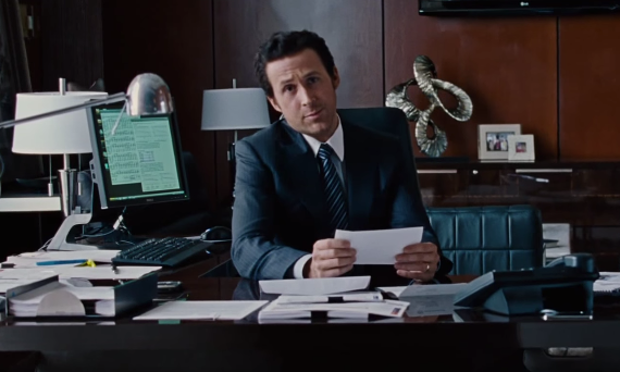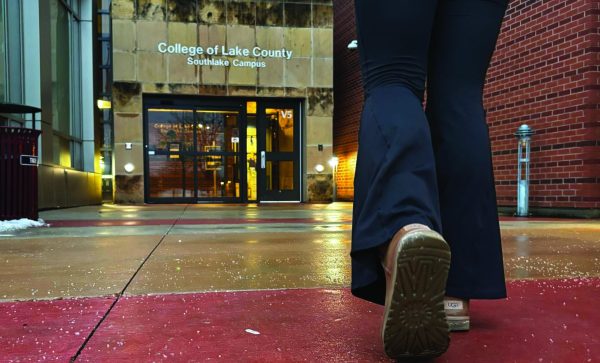Dissecting the big deal in The Big Short
Back in 2007, America suffered from one of the worst financial disasters in history; resulting in the Great Recession, wherein 8.8 million workers lost their jobs. The collapse of the nation’s economy is no laughing matter, but who better to create a film of such solemnity than the man behind Will Ferrell classics like Step Brothers, The Other Guys, and Anchorman: The Legend of Ron Burgundy.
Adam McKay, the writer and director of The Big Short, leads a comedic tirade on the country’s financial crisis and the very individuals to blaim. Based on the titular novel by Michael Lewis, McKay visualizes Lewis’ story about the few individuals that prospered commercially from a rather commercial catastrophe.
By spotting a rupture in the U.S. housing market, these hedge fund managers and investment bankers betted against the housing market to profit in millions. The probability of predicting a fiscal collapse seems small, but Finance teacher Mr. Sean Crevier confirms of their reasonings.
I had the pleasure of speaking with Crevier to flesh out the facts. He began by explaining, “what CDOs are and how they became problematic.”
The reasons behind the fiscal collapse dates back to actions made in the housing market, wherein Asset managers used money collected from investors to buy loans – mortgages in particular. Yet, the instability of the housing market began when these Asset managers created Collateralized Debt Obligations (CDOs), defined as batches of bad, high risk loans given at a cheap cost – making the purchase of a house feasible for the poor or unemployed.
Confused? No bother. Under Adam McKay’s witty direction, a visual analogy or celebrity cameo here and there simplifies complicated terms. The film even compares CDOs, however so pertinent, to poop.
When banks offered these CDOs to nearly anyone, even to those who weren’t financially capable of paying off such loans, the financial crisis was set. Everyone got paid. Everyone was happy. That was until those who purchased CDOs were unable to pay off their mortgages.
This small debt expanded through a chain reaction of CDOs, subprime loans, even synthetic CDOs, that created not only the collapse of the housing market, but of the nation’s economy.
Still confused? Crevier offered me a link to a video he called, “by far the simplest explanation I’ve heard on the collapse of the housing market.” This will be attached at the bottom of the article.
Even if the Wall Street lingo is foreign to viewers, the film’s hinge of pathos makes the story comprehensible.
What Crevier stresses in particular is the misunderstanding between the banks’ motives and the individuals who were never capable of paying off their loans, or CDOs. “Just because a mortgage company or even the government says, ‘Yes. You qualify for this loan.’ It does not mean you can afford it,” said Crevier. “That’s where the general public got into a lot of trouble. They did not know the difference.”
For that reason, many will leave the theater enraged with Wall Street corruption and of the other causing variables. Actors Christian Bale, Steve Carell, and Ryan Gosling, who play the role of the prospering outsiders, exhibit genuine heartache in their performances that nearly transcends their obvious celebrity status.
“Everyone trusted the banks,” said Crevier, “much like students trust their teachers.”
Crevier goes on to compare how banks verify who qualifies for a loan to that of how a teacher decides who can enroll in a specific class. He explains, “That’s like saying we’ll let you sign up for an AP class. That doesn’t mean you can succeed in that class. We’re just willing to enroll you into the class.”
There are raising questions to why banks would allow the poor or unemployed to buy loans usually set at a high risk. A probable reason – money.
Crevier questions if the banks have ulterior motives to get recognized for having a large number of borrowers to give loans to.
“Then you start getting into ethical issues,” said Crevier, “because who are the banks making these decisions for: themselves or for the people.”
I asked a few students, including Rose Ferolo (12), if they intended on seeing The Big Short. “No. It doesn’t sound interesting,” said Ferolo, “I don’t know anything about finance.”
For this reason, Crevier encourages more students to learn about finance, even outside of his single semester class. The collapse of the housing market, which occurred almost nine years ago, carries impending effects to this day – effects he believes students, especially seniors, should comprehend.
Even if students are not enrolled in finance, viewing The Big Short is at least a first step.
I mentioned to Ferolo how Ryan Gosling played a role in the film. She blushes, “Wow! I’ll watch it now.”
Link to video suggested by Mr. Crevier:
https://www.youtube.com/watch?v=eb_R1-PqRrw











